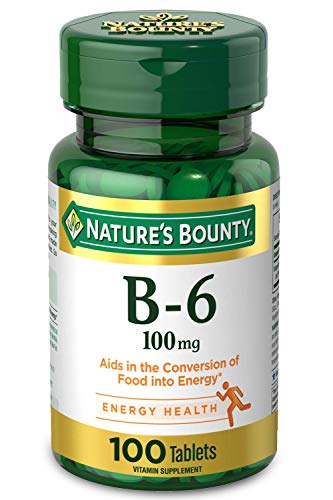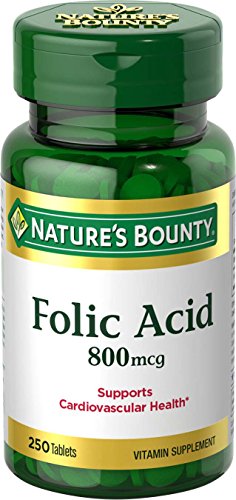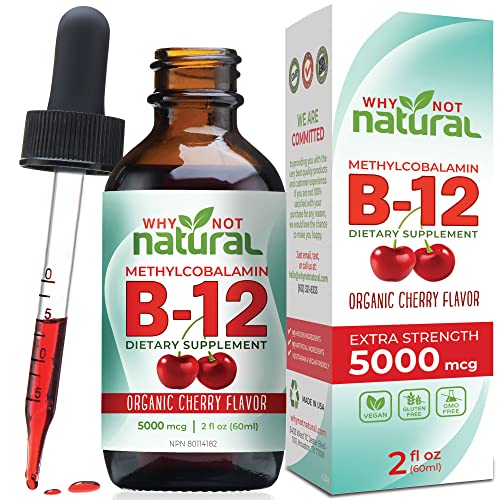Seborrheic dermatitis is a common inflammatory skin condition that can be aggravated by a myriad of factors, including vitamin and mineral deficiency.
B vitamins are as important for our skin as fertilizer is to the soil. The skin benefits of these vitamins include everything from improving wrinkles and skin tone to treating seborrheic dermatitis.
Let’s take a deep dive:
- Skin benefits of B vitamins
- How do B vitamins help seborrheic dermatitis?
- What should I expect when taking B vitamins for seborrheic dermatitis?
- What are the best sources of B vitamins?
- Best B complex supplements
- Side effects of B vitamins
- Vitamin B1 (thiamine)
- Vitamin B2 (riboflavin)
- Vitamin B3 (niacin)
- Vitamin B5 (pantothenic acid)
- Vitamin B6 (pyridoxine)
- Vitamin B7 (biotin)
- Vitamin B9 (folic acid)
- Vitamin B12 (cobalamin)
- To wrap up
Skin benefits of B vitamins
B vitamins are important for almost every function in our body and include reducing inflammation, preventing cognitive decline, nerve health and protecting against cancer and other diseases.
These vitamins are essential for healthy skin, hair and nails. Each of the seven B vitamins have their own special function which I will go into more detail below. You can reap these benefits both when you ingest B vitamins and when you apply them on your skin.
How do B vitamins help seborrheic dermatitis?
There is some evidence that B vitamins can help people with seborrheic dermatitis. Vitamin B may help treat seborrheic dermatitis by regulating sebum production, reducing inflammation and strengthening skin integrity. This can help reduce the severity of symptoms like itching, scaling, and redness and reduce duration of SD flares.
While the benefits of B vitamins for this condition are still being studied clinically, some people have seen positive results after taking B complex supplements.
It can take up to two weeks for B vitamin supplementation to show an effect on seborrheic dermatitis. This is because it takes time for the vitamin to build up in your system and start working. However, once it kicks in, you should see a decrease in symptoms.
B complex supplementation is definitely worth a try, especially if you’re also feeling depressed, anxious or fatigued on top of SD. You’re not at risk of overdose if you get your B vitamins from a balanced diet or taking supplements at the recommended dose.
What should I expect when taking B vitamins for seborrheic dermatitis?
When taking Vitamin B complex for seborrheic dermatitis, you should expect to see a reduction in symptoms such as itchiness and scaling. You may also find that your skin is less dry and more supple.
Bear in mind that B complex supplements should not be used as a sole treatment for seborrheic dermatitis. Also, not everyone responds the same way to B vitamins. If you don’t feel any effect after 3 to 4 weeks, it’s probably time to stop taking it.
What are the best sources of B vitamins?
It’s important to get your vitamins and nutrients from a variety of sources. Foods like poultry, eggs, fish, dairy products and whole grains are all good sources of B vitamins:
- Meat (e.g., beef, pork, lamb)
- Poultry (e.g., chicken, turkey)
- Fish (e.g., tuna, salmon)
- Dairy products (e.g., milk, yogurt)
- Eggs
- Legumes (e.g., black beans, lentils)
- Nuts (e.g., almonds, cashews)
- Seeds (e.g., pumpkin seeds, sunflower seeds)
Best B complex supplements
I’ll go through the individual forms of B vitamin and what they do (or not do) for seborrheic dermatitis. However, it doesn’t make sense to take individual forms of B vitamins separately. To get best results from the array of B vitamins is to take a B complex supplement that is sourced from whole foods.
Side effects of B vitamins
While B vitamins are generally well tolerated, there are a few potential side effects that can occur. Overdose of B vitamins may cause headaches, nausea and vomiting, diarrhoea, involutary muscle movements and other symptoms.
However, if you take a B complex supplement from a reputable brand according to the recommended dosage, it’s almost impossible to overdose.
Vitamin B1 (thiamine)
Vitamin B1 helps the body convert food into energy and plays an important role in the function of the nervous system. Thiamine also improves the appearance of fine lines and wrinkles and is good for acne-prone or dry skin.
A derivative of thiamine – oxythiamine – was found to be have antifungal activity against the yeast, Malassezia pachydermatis. However, there are no studies showing that vitamin B1 is helpful in relieving symptoms of seborrheic dermatitis.
Vitamin B2 (riboflavin)
Vitamin B2, also known as riboflavin, can be found in whole grains, legumes, and vegetables. It is important for immune health and thyroid function, among other things.
Riboflavin improves skin tone, makes skin more radiant and balances natural oils. B2 deficiency can result in a facial rash that is almost indistinguishable from seborrheic dermatitis. In fact, some medical sources cite seborrheic dermatitis as a skin symptom of riboflavin deficiency.
Vitamin B3 (niacin)
Niacin supports your skin’s natural defence, protect against environmental stressors and improves the look and feel of dry, sensitive skin.
Chronic B3 deficiency causes the 4 Ds – dermatitis, diarrhoea, dementia and if left untreated, death. The characteristic skin picture is photosensitive dermatitis but less commonly, seborrheic dermatitis may also be a symptom of B3 deficiency.
Vitamin B5 (pantothenic acid)
Vitamin B5 plays a role in energy production and metabolism. Symptoms of deficiency can include fatigue and other neurological problems, like tingling or numbness.
B5 keeps your skin hydrated and supple. balances skin sebum production, repairs skin and calms redness and inflammation. However, Vitamin B5 is unstable to use. That’s why it’s derivative, Provitamin B5 (panthenol) is so frequently found in skincare products instead. You’ll also find panthenol in anti-dandruff shampoos to reduce dandruff.
Vitamin B6 (pyridoxine)
Vitamin B6 is a water-soluble vitamin that is part of the vitamin B complex. It is involved in over 100 enzyme reactions in the body and helps to convert food into energy.
Among other things, Vitamin B6 is known to have many benefits in relation to immune health and thyroid function. B6 deficiency may also contribute to tiredness due to its role in making the sleep-promoting hormone melatonin.
Pyridoxine reduces the effects of hormonal imbalance on the skin which can lead to acne breakouts. This improves inflammation and reduces acne.
The most common skin sign that you’re deficient in Vitamin B6 is actually seborrheic dermatitis so if you’re struggling with controlling your SD, make sure you’re not deficient! Vitamin B6 is found in a variety of foods, including poultry, salmon, and supplements.
Vitamin B7 (biotin)
Biotin is a water-soluble vitamin that’s part of the B complex. It plays a major role in the health of your hair, skin, scalp and nails. Some people even take biotin supplements to improve their hair and nail health.
Biotin has been associated with seborrheic dermatitis, and it may be helpful in reducing the inflammation and symptoms of this condition.
A famous trial on 25 infants found intravenous biotin improved generalized seborrheic dermatitis by 4-8 days.
Biotin can be found in many foods including eggs, nuts, and seeds. Biotin is safe for most people, but there are a few exceptions. For example, if you have liver disease or are pregnant, you should speak to your doctor before taking biotin supplements.
Vitamin B9 (folic acid)
Folate is vital to cell division and is especially important for skin cells. Adequate levels of folic acid can improve acne and skin congestion. In fact, a deficiency of B9 can lead to seborrheic dermatitis and vitiligo.
Pregnant women, especially, are at risk of folate deficiency due to increased requirements. Fortunately, folate levels are easily checked with a blood test. If you’re deficient, replacing folic acid will likely see improvement in your SD within 2 weeks
Vitamin B12 (cobalamin)
Symptoms of a vitamin B12 deficiency include fatigue, difficulty thinking clearly or focusing on tasks, mood changes like depression or irritability, tingling or numbness in the hands and feet, pale skin coloration,, and weight loss despite an adequate diet. If you experience any of these symptoms, see your doctor so they can test for a vitamin B12 deficiency and determine the best course of treatment.
Vitamin B12 really is a ‘miracle drug’ for older people. Replacement not only boosts the radiance of dull skin, it can also revive your energy if you have been deficient in it.
Two small human studies showed that B12 injections improved seborrheic dermatitis. In fact, one study reported improvement in 86% on patients. It’s worth thinking about B12 for seborrheic dermatitis.
B12 can be taken in 3 forms – cyanocobalamin, hydroxycobalamin and methylcobalamin. Cyanocobalamin is the cheapest form of B12 for a reason – it releases a small amount of cyanide as it is metabolized by the body. Cyanocobalamin and hydrocycobalamin both need MTHFR enzymes to transform them into methylcobalamin, the active form of B12. It makes sense then, that the best B12 supplementation is methylcobalamin.
Methylcobalamin is available in oral liquid drops and sublingual ‘microdots’, or as an injection with your doctor.
To wrap up
It’s obvious that B vitamins are important for skin health in general and seborrheic dermatitis specifically. There is no harm in taking a B complex supplement for a few months to see if it makes any difference to your SD, mood and energy. If you think your diet is bad, Ttaking a good-quality multivitamin sourced from whole foods may be the best way to make sure your nutrient needs are taken care of. But remember, a healthy diet is vital for overall well-being and health. There is no ‘magic pill’ for that.
 Check it out on Amazon
Check it out on Amazon Check it out on Amazon
Check it out on Amazon Check it out on Amazon
Check it out on Amazon Check it out on Amazon
Check it out on Amazon Check it out on Amazon
Check it out on Amazon Check it out on Amazon
Check it out on Amazon Check it out on Amazon
Check it out on Amazon Check it out on Amazon
Check it out on Amazon Check it out on Amazon
Check it out on Amazon
Pingback: iron deficiency seborrheic dermatitis
Pingback: Best scalp oils seborrheic dermatitis
Pingback: Aveeno seborrheic dermatitis
Pingback: What vitamin deficiency causes seborrheic dermatitis?
Pingback: The 9 Best Face Moisturizers For Seborrheic Dermatitis
Pingback: seborrheic dermatitis treatment
Pingback: banana seborrheic dermatitis
Pingback: eggs seborrheic dermatitis